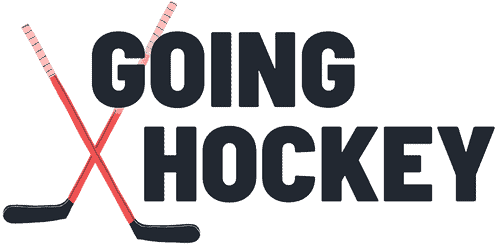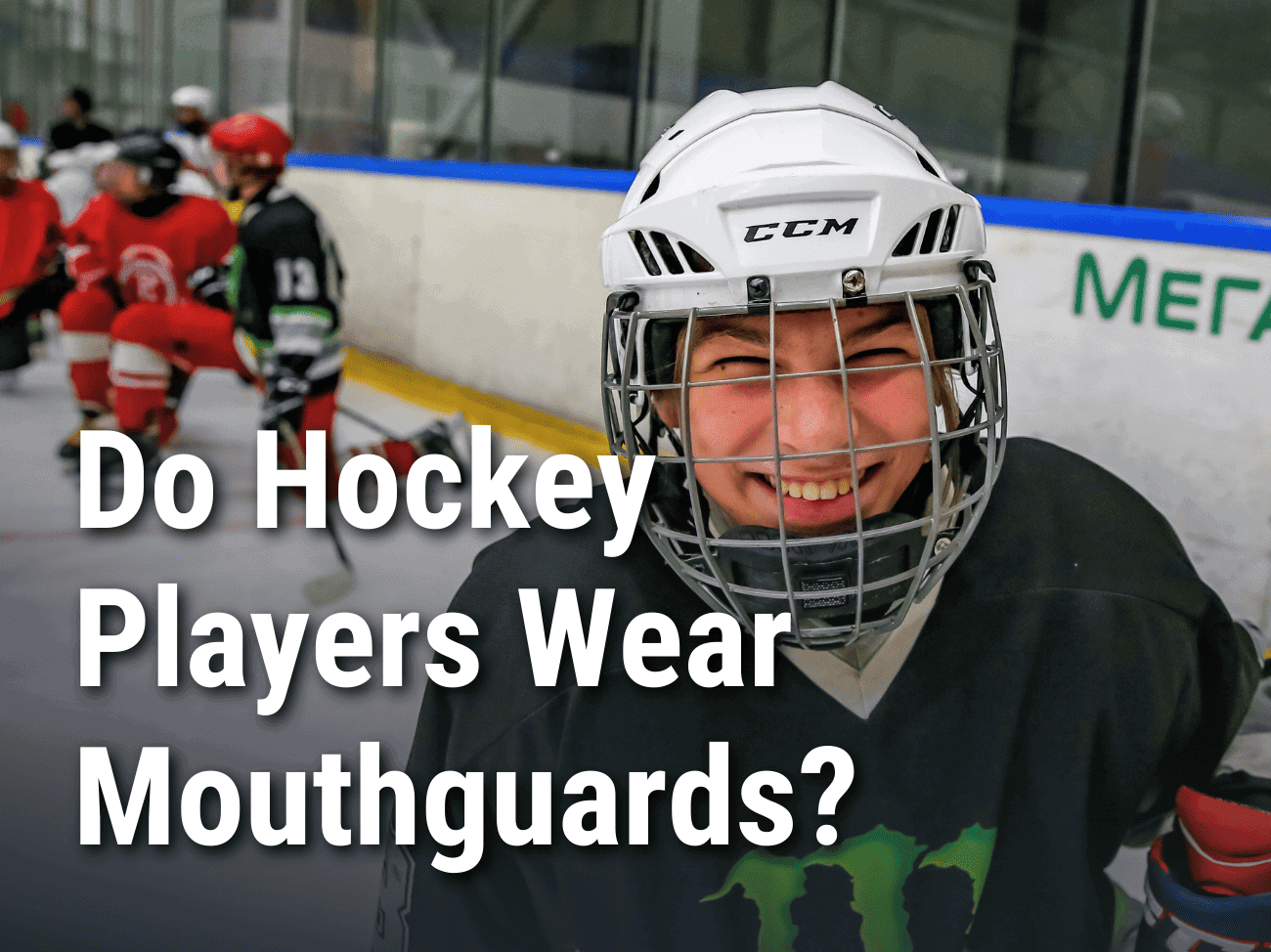Hockey, a thrilling and fast-paced sport, demands both skill and resilience from its players. Amidst all of the danger and violence within the sport, it is often vital to analyze the protective measures that athletes undertake to safeguard their well-being.
Many wonder about “mouthguards” within the sport.
Do hockey players wear mouthguards?
A majority of hockey players wear mouthguards in leagues where hitting is allowed. In leagues where hitting is not allowed, the majority of hockey players do not wear mouthguards. This is a good rule-of-thumb answer to remember, but the true answer is a little more nuanced than that.
The decision for a hockey player to wear a mouthguard or not largely depends on the type of hockey being played.
Do Hockey Players Wear Mouthguards
Hockey players sometimes wear mouthguards and sometimes don’t.
Generally, the more intense the hockey, the more mouthguards you will see. In settings where the intensity of play is very low, there are rarely any mouthguards to be seen.
The prevalence of mouthguards depends entirely on the type of hockey being played.
Casual Outdoor Hockey
One kind of hockey in which virtually no one would be wearing a mouth guard is casual, outdoor hockey. “Casual, outdoor hockey” is where you go to an outdoor rink with nothing but a stick, skates, mitts, and a “beanie” (“toque” if you’re Canadian) and start playing with whoever’s there.

No one is wearing a helmet, gloves, or any other kind of equipment, so it would look silly if you were wearing a mouthguard. The intensity of hockey simply doesn’t necessitate the use of a mouthguard.
It’s important to note though, that it’s generally an unspoken rule that no one will be shooting pucks high or aggressively stick-checking in this kind of outdoor hockey.
Pickup Hockey
Pick-up hockey is a type of hockey wear you may see a few mouthguards. However, a majority of players will still not be using them.
“Pick up” hockey is a kind of semi-organized hockey wear a maximum of n players can show up to a predetermined ice time and play a few “games to 5”, or some other arbitrary score. There are no refs but traditional rules are still loosely enforced by the players.

The intensity of hockey played is greater than “casual, outdoor hockey” but still less than an adult league or organized tournament. After all, no one is playing for any kind of championship.
Pick-up hockey will usually involve full equipment, with the exception of shoulder pads, which players often forgo as there is usually no hitting in this kind of hockey.
However, since everyone is in full gear, a mouthguard wouldn’t seem that out of place.
One time, in pick-up hockey, my brother took a high stick to the mouth which caused one of his canines to puncture a hole through his bottom lip.
Adult League
Adult league is where you will probably see the most amount of mouthguards. However, even in this case, a majority of players will still not be wearing a mouth guard.

Players are usually wearing full gear (minus shoulder pads for some) and games feature referees. Games can get pretty intense, and players will be trying their hardest, even if the wins are just for bragging rights.
Pucks to the face and high sticks are not super common, but they do happen.
One time, in adult hockey, my Dad took a deflected slap shot to the mouth which ended up chipping one of his teeth in half.
Junior Hockey | College Hockey | Youth Hockey
Virtually every junior, college, and youth hockey league (with hitting) requires mouthguards to be used. These leagues include:
- Hockey Canada
- WHL
- OHL
- QMJHL
- Junior A
- etc.
- USA Hockey
- USHL
- NAHL
- etc.
- NCAA
- Div I
- Div III
- USPHL
- NCDC
Do NHL Players Use Mouthguards?
The majority of NHL players do wear mouthguards.
While the NHL does not mandate the use of mouth guards, it has become a common practice among players to protect their teeth and jaws from potential injuries during games. Many players recognize the importance of oral protection and opt to wear custom-fitted or professionally-made mouthguards.

Mouthguards provide several benefits, including cushioning against impacts, reducing the risk of dental injuries, and potentially minimizing the severity of concussions.
It’s worth noting that individual preferences and choices may vary, and some players may opt not to wear a mouthguard despite the potential risks. However, the vast majority of NHL players do choose to wear mouthguards for added protection on the ice.
Why Don’t Hockey Players Wear Mouthguards?
Although mouthguards do provide many benefits for protection and safety there are a few drawbacks which may cause some hockey players to opt out of using them.
Mouthguards often make simple everyday activities more difficult, such as:
- Breathing
- Talking
- Spitting
Not to mention, it’s simply uncomfortable having a big piece of rubber constantly in your mouth.

The inconveniences associated with mouthguards can largely be mitigated by using custom-fitted mouthguards, like the pros, but casual players rarely want to invest in such solutions. Thus, it’s more common for casual or amateur hockey players to just not use mouthguards.
I absolutely hated using mouthguards growing up. They were extremely uncomfortable, and I felt like I couldn’t breathe.
I couldn’t even use stock mouthguards without gagging.
I would have to buy regular mouthguards, cut off the ends, and just keep a small front piece so that refs could see I had something.
What Is a Mouthguard For?
Mouthguards are used to prevent dental injuries, or at least reduce the severity of dental injuries. Mouth guards act as a kind of cushion to mitigate the force of your jaw impacting your top row of teeth. They can also act as covers for your teeth to prevent lip, gum, and tongue lacerations resulting from impacts to the mouth.
Do Mouthguards Prevent Concussions?
Mouthguards do not prevent concussions. It is a common misconception that mouthguards prevent concussions.
A concussion occurs when the skull undergoes a rapid change in momentum in a short period of time. When this happens, there is a deviation between the momentum of the skull and the inertia of the brain causing the two to collide internally.

Some have suggested that mouthguards can diffuse the force received by the skull in jaw-oriented impacts, effectively minimizing the risk of concussions, but this theory is largely unsupported by scientific literature.
Common sense would also tell you that 3 mm of plastic is largely ineffective at diffusing the force incurred by a 200 lb hockey player hitting you in the jaw at 20mph.


Leave a Reply